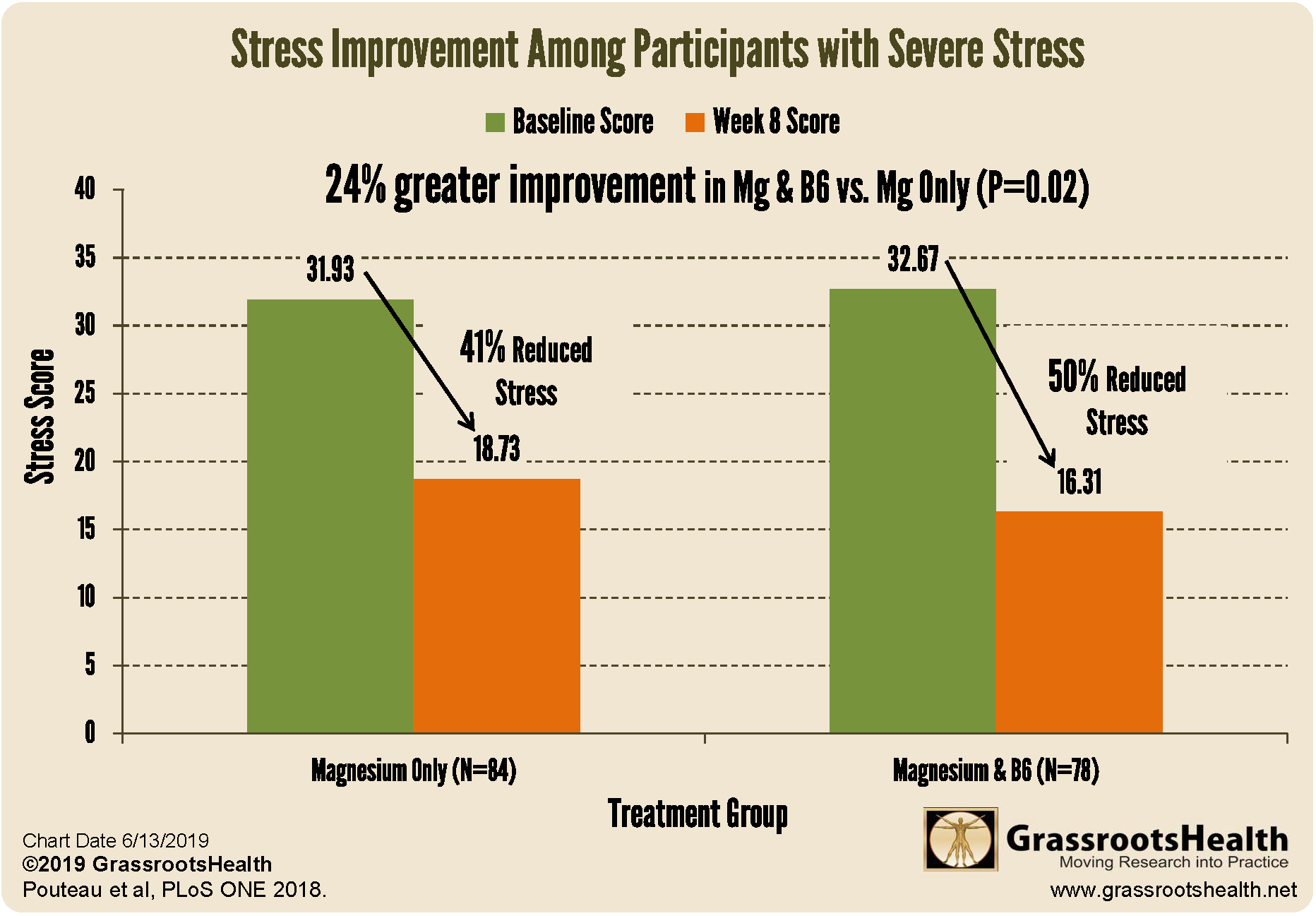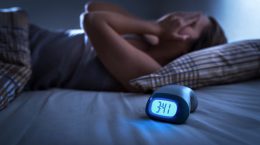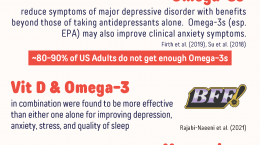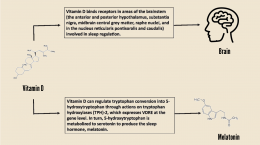Published on June 18, 2024
Findings from a new meta-analysis show that higher doses of magnesium were most effective in addressing anxiety and sleep issues, especially among those with low magnesium status
Key Points
- Magnesium is well-known for its calming and anti-anxiety effects, and research investigating magnesium supplementation and sleep has shown significant improvements in insomnia severity, sleep time, sleep efficiency, sleep onset latency, and the regulation of sleep related hormones
- A systematic review was recently conducted using data from 15 interventional trials (randomized control trials or observational trials); each study included a known dose of magnesium that was at least 50 mg/day and measured outcomes for sleep, anxiety, or both
- The study found that higher doses of magnesium were more effective in addressing both issues, and magnesium combined with vitamin B6 appeared most effective for addressing anxiety symptoms; it also concluded that more research may be necessary to determine which forms and specific doses of magnesium might be best for these conditions
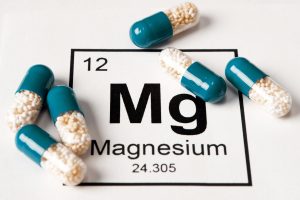 Both chronic stress and a consistent lack of sleep can contribute to the development and progression of many health diseases. According to the Centers for Disease Control and Prevention (CDC), insufficient sleep alone has been linked to conditions such as type 2 diabetes, cardiovascular disease, obesity, and depression. Chronic stress has also been linked to an increased risk of heart disease, metabolic syndrome, diabetes, and other health conditions through triggering systemic inflammation and altered inflammatory activity.
Both chronic stress and a consistent lack of sleep can contribute to the development and progression of many health diseases. According to the Centers for Disease Control and Prevention (CDC), insufficient sleep alone has been linked to conditions such as type 2 diabetes, cardiovascular disease, obesity, and depression. Chronic stress has also been linked to an increased risk of heart disease, metabolic syndrome, diabetes, and other health conditions through triggering systemic inflammation and altered inflammatory activity.
Magnesium has repeatedly been in the spotlight on many social media platforms as a natural way to fight stress and improve sleep – but how well is this claim backed by research? Magnesium is well-known for its calming and anti-anxiety effects, and research investigating magnesium supplementation and sleep has shown significant improvements in insomnia severity, sleep time, sleep efficiency, sleep onset latency, and the regulation of sleep related hormones. Magnesium supplementation has also been shown to decrease periodic limb movements during sleep.
Findings from a New Meta-Analysis on Magnesium, Sleep, and Anxiety
A systematic review was recently conducted and published by Rawji et al. on the clinical evidence supporting the use of magnesium for quality of sleep and anxiety symptoms. Only data from interventional trials (randomized control trials or observational trials) was used, and each study had to include a known dose of magnesium that was at least 50 mg/day. 15 studies were included, with 8 measuring sleep outcomes, 7 measuring anxiety, and one measuring both.
Among the sleep-related studies, 5 found that magnesium supplementation resulted in improvements in sleep quality, while two reported negative results and one reporting mixed results. Of those reporting negative results, one gave the lowest dose of magnesium oxide compared to all other studies (250 mg), with supplementation given in the morning (the authors suggest that magnesium supplementation closer to bedtime may be more effective for sleep). The other negative study gave only 100 mg of magnesium chloride, the lowest dose of magnesium among each of the sleep studies evaluated.
Combining Magnesium with B Vitamins Resulted in Better Improvements for Anxiety Sufferers
Among the stress-related studies included in the review, several combined magnesium with other ingredients such as vitamin B6. Taking B vitamins, especially vitamin B6, is important for addressing stress – in fact, vitamin B6 has demonstrated anti-stress benefits itself, and it assists in the cellular uptake of magnesium. As illustrated in the chart below, a study by Pouteau et al. found that those taking vitamin B6 with magnesium experienced a 24% greater improvement in stress compared to those taking magnesium alone, however, this was only significant among those with severe or extremely severe stress.
Five of the studies reviewed by Rawji et al. found that magnesium supplementation was related to positive stress outcomes, with higher doses of magnesium in combination with vitamin B6 related to the greatest reductions in anxiety scores. The only study showing clearly negative results used the lowest dose of magnesium among all studies included in the review.
Magnesium Found Most Helpful Among those with Low Magnesium Status
The study concluded,
“supplemental magnesium is likely useful in the treatment of mild anxiety and insomnia, particularly in those with low magnesium status at baseline.”
Higher doses of magnesium were more effective in addressing both issues, and magnesium combined with vitamin B6 appeared most effective for addressing anxiety symptoms. The study also concluded that more research may be necessary to determine which forms and specific doses of magnesium might be best for these conditions.
Adverse events were uncommon among all studies and were mild, with the most commonly reported side-effect being loose stool.
Make Sure You Are Getting Enough Vitamin D, Magnesium, and Other Important Nutrients – Test At Home!
 Having and maintaining healthy vitamin D levels and other nutrient levels can help improve your health now and for your future. Choose which additional nutrients to measure, such as your omega-3s and essential minerals including magnesium and zinc, by creating your custom home test kit today. Take steps to improve the status of each of these measurements to benefit your overall health. With measurement you can then determine how much is needed and steps to achieve your goals. You can also track your own intakes, symptoms and results to see what works best for YOU.
Having and maintaining healthy vitamin D levels and other nutrient levels can help improve your health now and for your future. Choose which additional nutrients to measure, such as your omega-3s and essential minerals including magnesium and zinc, by creating your custom home test kit today. Take steps to improve the status of each of these measurements to benefit your overall health. With measurement you can then determine how much is needed and steps to achieve your goals. You can also track your own intakes, symptoms and results to see what works best for YOU.
Enroll in D*action and Test Your Levels Today!


